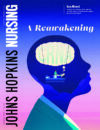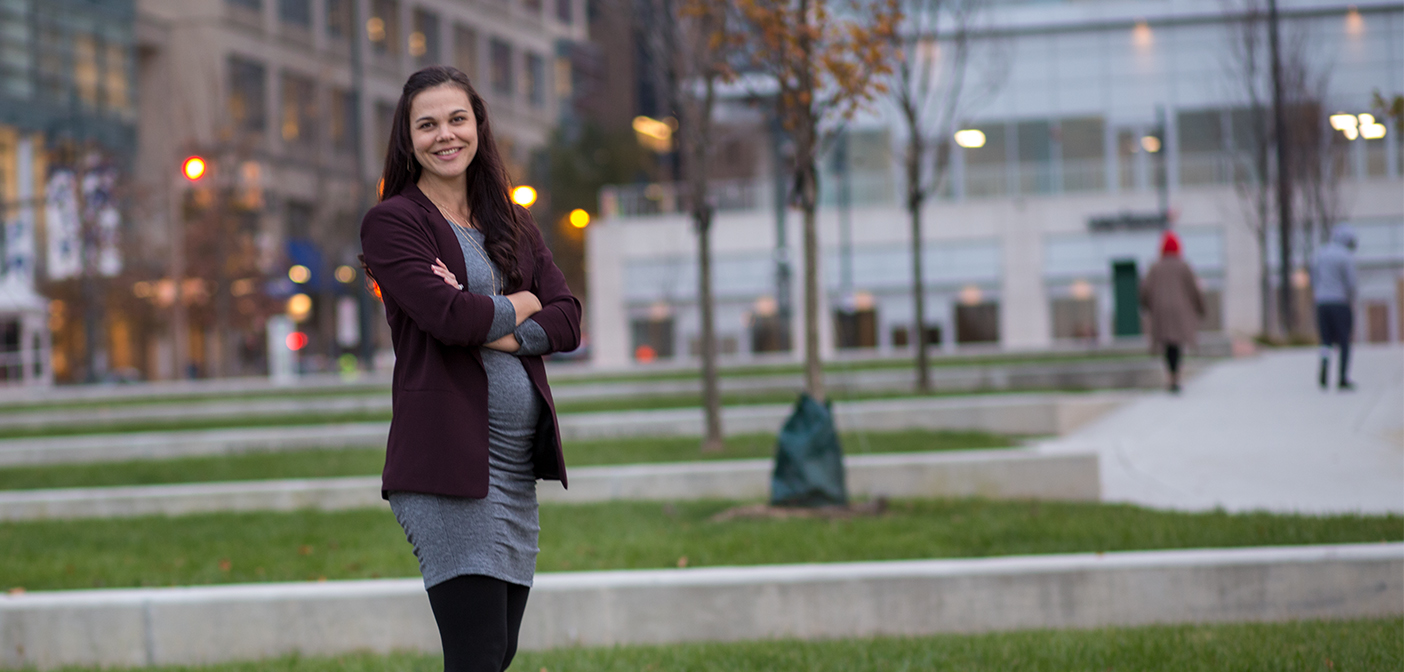PhD candidate Kelli DePriest embraces a golden opportunity to help children born with less.
Growing up, Kelli DePriest admittedly had little awareness of her own good fortune—born white and reasonably well-to-do in a Colorado suburb where everyone looked and lived a lot like her. Disparities in income and health care access weren’t topics that came up.
For the truly lucky, though, exposure and experience come like smelling salts. And so it was that DePriest had an awakening: Be the change she never really knew she wanted to see.
“I thought, ‘How have I missed this?’”
It began with undergrad courses in ethnic studies, “exposure to cultures and histories of racial and ethnic groups other than my own that I hadn’t learned about … I thought, ‘How have I missed this?’”
Next stop: Peace Corps and Choiseul, a village on the island of St. Lucia. Truth be told, DePriest needed the mission as much as the villagers needed her. “Choiseul is a rural fishing village where relationships are valued over material possessions,” she says, “so they weren’t living at the lifestyle I was accustomed to. But they were taking care of each other. It was a tight community.”
The Peace Corps has long had a presence in St. Lucia, so she set to work from a good foundation as a youth development volunteer. Specifically, DePriest led a Football for Lives program, which uses sports to teach children HIV prevention and general life skills. One game features “Zebras” dribbling a soccer ball in a circle while “Lions” (HIV) try to take it. Afterward, the children discuss HIV within the context of the game. “It’s a really well-developed program that was just sort of handed to me,” she demurs. Still, “I realized how much I enjoyed being able to share fundamental knowledge on sexual health.”
A Peace Corps fellowship drew her to what was then the BSN program at Johns Hopkins. She spent several years in the Johns Hopkins Hospital pediatric intensive care unit. She loved the kids but grew frustrated at not being able to help children—inner-city asthma patients, for instance—steer clear of the ICU in the first place. Education again seemed to be the key. “These kids grow up in poverty through no fault of their own, exposed to unhealthy environments,” DePriest explains. “I try to focus on finding the things that can make them resilient, help them bounce back.”
Things like green space and encouraging primary care. “If they’re just coming to the PICU, they never get someone—a specialist—who can dig deep and make sure their medicines and care routines are best for them.”
A successful dissertation defense behind her, DePriest hopes to open more eyes to health equity as nursing faculty in the future. Until then, with her first baby on the way and husband Andrew Corley at an earlier part of the PhD Program (the “controlled flailing” stage, she calls it), DePriest might feel like a zebra keeping the lions at bay for a bit. The discomfort suits her.

